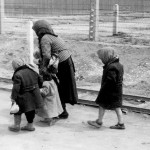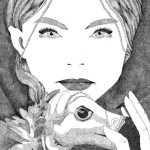
[Author’s Note: My experiences and opinions may be shared by others, but I am not trying to make absolute statements regarding transgender and nonbinary folks as such statements about so diverse a population are inevitably incorrect. I am writing from the cultural context that I am familiar with and understand that there are many other takes on gender and the Mysteries out there.]
The topic of gendered Mysteries has been making its rounds again among Pagans in the blogosphere, and occasionally in in-person conversations I’ve been involved in as well. Not surprisingly it’s a touchy subject for me, as it is for a lot of people in these days where so many of us are crossing, kicking over, dancing on, or completely ignoring the gender binary.
Shared Experiences
From a lot of what I’ve read and been told about Mystery practices and traditions (and my all-too-brief experiences with the Fellowship of Isis), they seem to center around shared experiences. Birth, coming of age, death (so many revolve around that Greatest Mystery) and others. To me they seem to be an attempt to sanctify these experiences and put them into a context where the participants can uncover a greater spiritual truth regarding them, something that connects them to each other and to the greater world and Powers that they revere.
In the case of mysteries that are most commonly referred to as Women’s or Men’s Mysteries, they usually revolve around a shared physicality and the things that accompany that shared physicality. The vast majority of Women’s Mysteries that I’ve read about have involved menstruation, for instance, and with Men’s rites they often seem to revolve around experiences born of having a certain level of testosterone in their system (and sometimes having a penis and testicles). People whose lives have been socially defined by their genitals (which we do far too often in our societies) have a lot of shared experiences based off of them.
What happens when a man menstruates, though, or a woman has a penis? They are most often excluded from the Myseteries that match their gender, which can be painful and invalidating. Let’s be honest, being a transgender or nonbinary person involves a constant battle in life; every day you have to justify your identity to hostile strangers (and often family and friends) hell-bent on cramming you into a box that you don’t fit into. Being told that you’re not a real woman or man based on your equipment and excluded from rites that are labeled women’s or men’s rites is a harmful and hostile experience, and has lead more than a few folks I know to avoid rituals that are pegged one way or another entirely (and sometimes whole faiths – Wicca’s frequently heteronormative and cissexist assumptions, language, and rites have often made it unfriendly to my kind of people).
It seems to me that a more legitimate way to label these rites are “Mysteries for People With Functioning Wombs” and “Mysteries for People with Penises.” Those aren’t terribly catchy but are a far more honest way of labeling them, unless they happen to be about more than just the functionality and shape of your reproductive organs.
Biological Reductionism and Essentialism
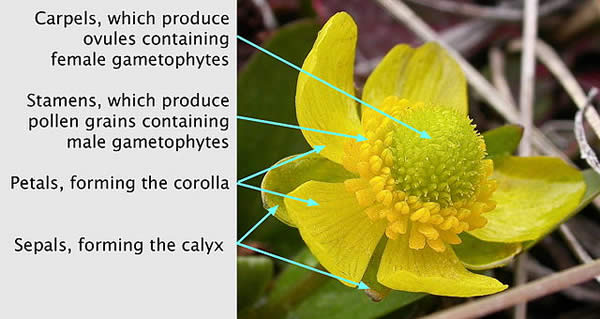
Reducing men’s or women’s experiences to a biological function is a dangerous oversimplification. There are a lot of experiences that people share based off of their gender identities (who you are) and expressions (how you dress and comport yourself) that do not have any bearing on their genitals. There are many folks who wear what one of my friends likes to refer to as Schrodinger’s Pants – what is inside them is uncertain and undetermined until they are removed. In our society we tend to value the privacy of a person’s genitals unless we think that that person might be transgender in which case they are a matter of public discussion and it is assumed to be totally legitimate to ask personal questions regarding them up to and including asking people to reveal them.
There are lots of shared gendered experiences that do not involve genitalia, however. I have always been able to tell when people see me as a woman, and it has never required me to remove any articles of clothing. When I’m dealing with men I’m talked over and ignored, suggestions I made are disregarded and then recycled with no credit to me, I’m peppered with pet names and other cutesy diminutives that they seem to think are complimentary, and if they are a friend they behave protectively towards me, standing between me and things that they view as threats and defending me even when I haven’t asked to be defended. When I’m interacting with other women they tend more open and relaxed with me and willing to discuss private and personal matters more fully, compliment my appearance whether they mean it or not (I know when I look like terrible; you’re not fooling anyone), and also be supportive of me emotionally especially when it regards difficulties in dealing with shared experiences. They also tend to be far more willing to be cold and hostile when they don’t trust me or disapprove of me.
Most women are familiar with these experiences. We’re also familiar with the greater emotional range that estrogen confers, the awkwardness of feeling your body on display even when you don’t want it to be (especially when you don’t want it to be and whether that display leads to appreciation or revulsion) and the great amount of nuance in subtle communication that we tend to be more observant of. Most of these experiences revolve around social gender roles and expectations (and the institutionalized misogyny that accompany them). There are also spiritual tendencies that many women have observed that seem to be linked to things other than our reproductive organs; connection to the earth, spiritual receptivity, and others. These things are by no means universal or uniform, but then neither is our reproductive equipment.
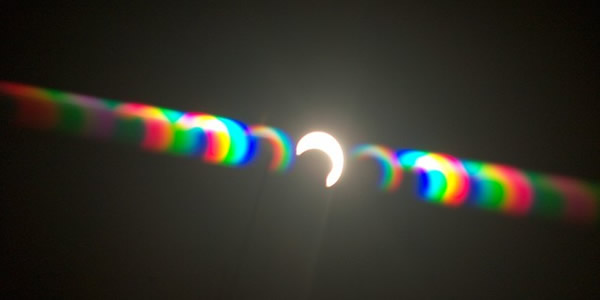
These are all experiences that Women’s Mysteries could potentially explore, sanctify, and use to connect to the holy Powers. Even the negative experiences can be used as a point of connection and deepening understanding of the self and place in relation to the rest of the cosmos. They are experiences that are not genital-dependant. They are experiences that are not based on chromosomes (although I will add here that our high-school taught black-and-white understanding of chromosomal sex tends to be far behind current research and understanding). Is there some ineffable aspect of womanhood that involves neither physicality nor social conditioning? If there is, that is definitely something that deserves to be explored through women’s rites and mysteries.
However, there are plenty of people who would exclude transgender people from Women’s and Men’s Mysteries even when they do not involve shared experiences regarding genitals. Hand-waved explanations involving “astral wombs” and speculation on whether or not someone possesses one are among the excuses used for these exclusions (and there’s never an Astral OB/GYN in the house to confirm or deny). This “astral womb” usually arises when the legitimate question of why cisgender women born without wombs or have had their uteruses removed at an early age are still welcome in Women’s Mystery rites, but trans women are not. “Go practice your own Mysteries!” we’re often told, by people who are not in any position to know whether or not we have our own Mysteries.
While there may certainly be alternate mysteries for non-binary people, I am unaware of them as I’m not non-binary, and wouldn’t be able to participate in them effectively. I don’t know “both sides of things” or have a “broader view” and while I may be a liminal person in a lot of ways I don’t really feel that being trasngender has any bearing on that – I’m a liminal person because I’ve always been open-headed and heard and interacted with spirits, because I have a deep-seated urge to transgress boundaries, and because I’ve lived and even grown up in different cultures and spiritual traditions. As transgender people go, I’m pretty boringly binary. I encourage nonbinary people to try and find shared experiences that they can use to construct their own mystery rites, and binary folks to give them the space and support they need to do so.
As long as you base your understanding of being a man or a woman around your reproductive organs, you will be limiting the sort of power and connection you can make in your Mystery rites, or even just gendered rites. As long as you label your rites as Women’s and Men’s rites and then exclude transgender folks because of their genitals you are doing a disservice to the concept of your gender and the breadth of shared experiences surrounding it. Be honest about them, label them “Blood Rites” and “Seed Rites” or what have you but don’t pretend that they are Men’s or Women’s Mysteries and then exclude women and men from attending because of your assumptions regarding what is in their pants. We follow traditions that frequently embrace concepts of reincarnation, of spiritual transformation, of many souls or soul parts – are you really going to limit your concept of a person’s spiritual makeup to what you assume their genitals looked like when they were born (or look like now) in this particular incarnation?
I’m aware that I don’t menstruate. I don’t share that experience and I am not interested in attempting to participate in a rite where that is a requirement. However, I know plenty of transgender men and nonbinary folks who do, and telling them that they’re women for the purposes of gendered Mystery rites is a damning as telling me I’m not a woman for the same reason.
We may be a minority, but we’re becoming a more visible and vocal minority as more people come to know us as human beings rather than the standard stereotypes of “deranged criminals” and “pathetically insane” and education and understanding regarding us increases. This exclusivity is not a problem that will go away if you ignore it, because we will no longer be ignored. It won’t be one that will be easily avoided as we are everywhere, in every strata of society and every religious path, and despite what you might think you can’t always pick us out by our faces, bodies, and voices.
Mysteries of Our Own and Mysteries Shared
What are our options for these “Mysteries of Our Own” that other folks seem to think that we possess? A rite to celebrate victories in the battle against the world that we all have to undertake to assert our identity? A funeral for all of the masks we use to wear to keep ourselves safe but that burdened, weakened, and harmed us? Perhaps a celebration that comes when people start to see us as ourselves? A rite where we embrace the pronouns that reflect us well? An abjuration and execration of the strict chains of the gender binary (especially for nonbinary folks)? We already have the Transgender Day of Remembrance, the day where we mourn (often in ceremony) those transgender people who were murdered for being themselves (though it’s painful that that’s such a commonly shared experience). I and other Pagans have been incorporating it into our spiritual rites for a while now (see also the Transgender Rite of Ancestor Elevation). Some folks have been creating a ceremony in April, at the other end of the year, a Trans Day of Empowerment, and surely that could be used to fuel some of our own Mysteries. These are just suggestions.
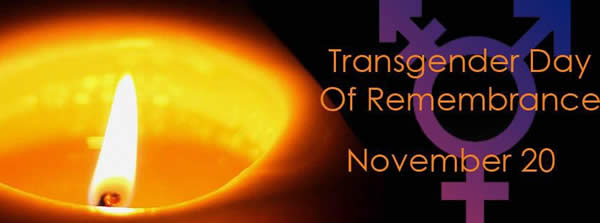
I’ll leave off on a positive note with a story about how I was included, and the benefits that came from it. Many years ago I was invited to a women’s spirituality group. This was before I came out as transgender so my presentation was still for the most part masculine of center. I was the only person for whom that was the case; I was pleased and surprised and when I asked why I had been invited I was told that it just felt right to the participants (imagine that!).
It was a wonderful experience. There was a level of comfort, connection, shared identity (even if I was not forthright about that at the time, the others knew it), warmth, and power between us that I’ve never felt in another group. I don’t know if what we practiced could be qualified as mystery rites, but it was definitely spiritual women’s space. It fell apart over time and distance and personal disagreements as many small spiritual groups do, but I learned a lot about myself from it, and it was powerfully validating. I like to think that the other members learned just from including me in it, that the perception of the flesh I carry and the social connotations of the clothes that I wore mattered less than the whole of the being that I was, and that being fit in to their definition of womanhood.
We’re forced to examine things that many people take for granted. We struggle with ourselves in ways that others aren’t forced to and learn from it. We know ourselves better than anyone else does. We know where we belong.
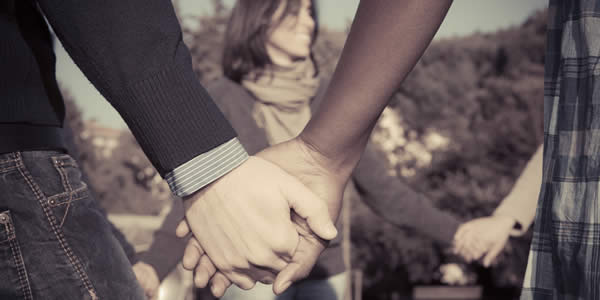

Patheos Pagan on Facebook.

the Agora on Facebook
The Lady’s Quill is published on the second and fourth Thursday of every month. You can subscribe by RSS and e-mail.
Please use the links to the right to keep on top of activities here on the Agora as well as across the entire Patheos Pagan channel.







